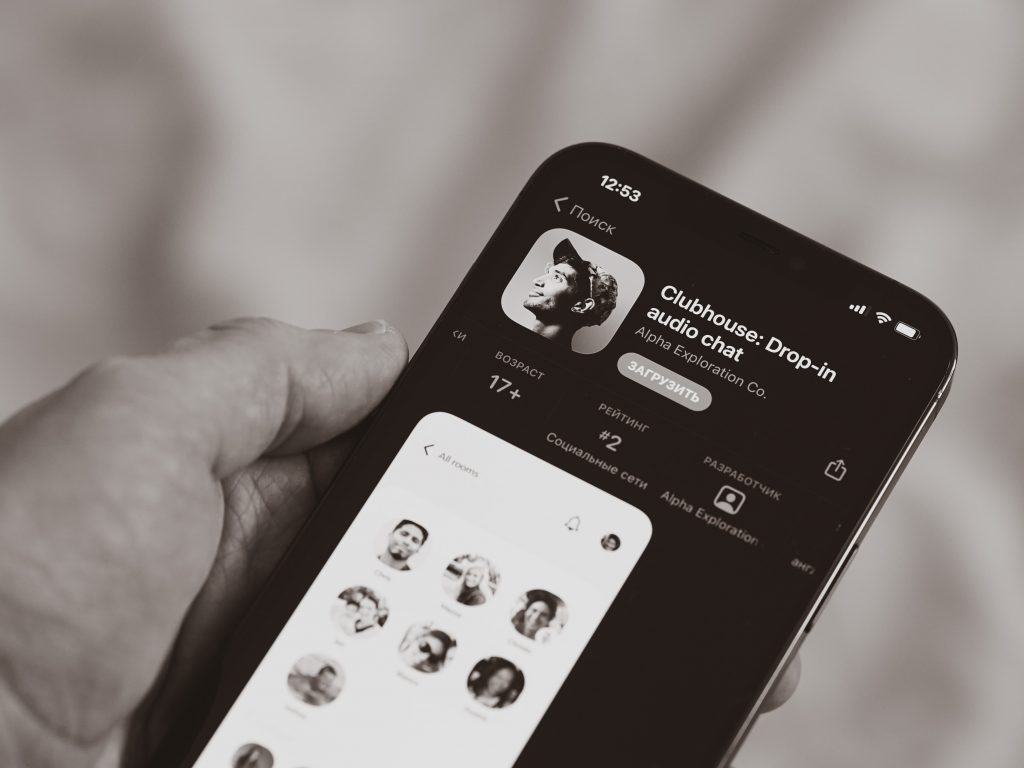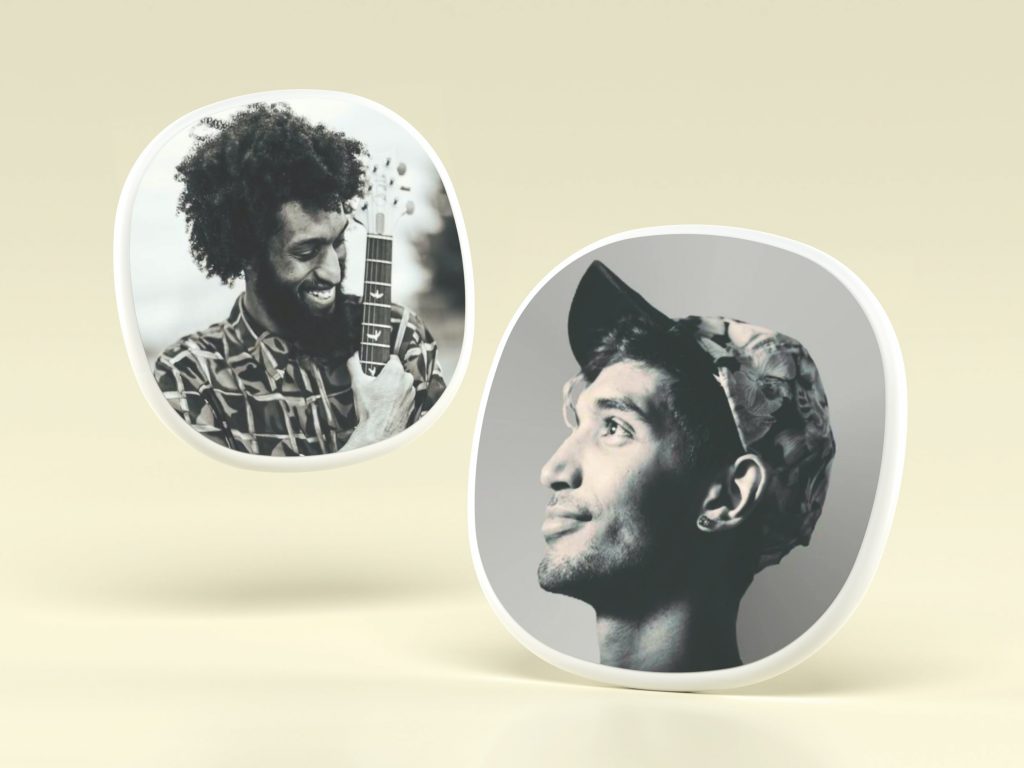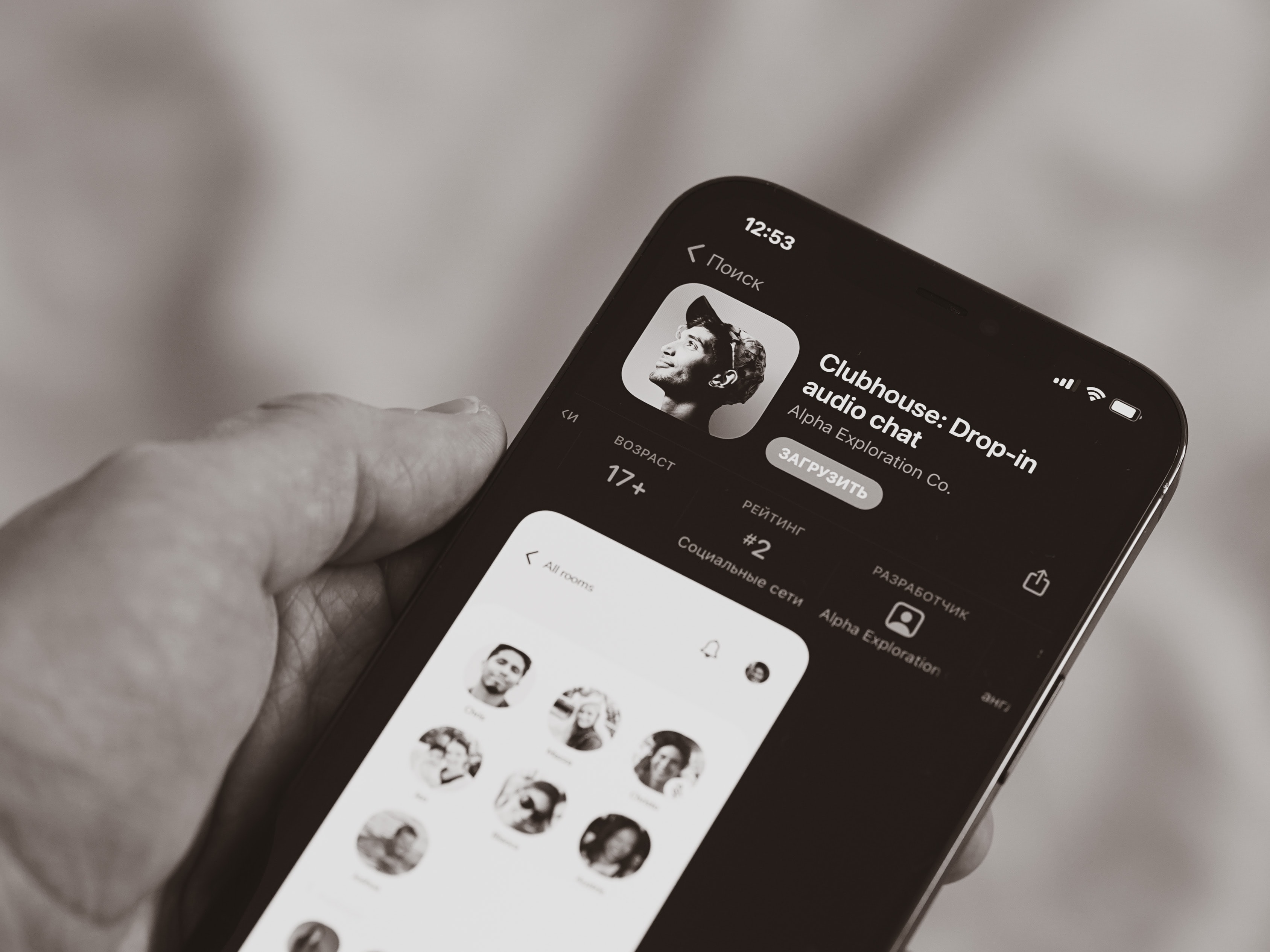I came around at dawn. The empire state blinked weakly in the shy light of a new day. My mouth felt heavy and full of cotton. I realized I was thirsty. We hadn’t moved for hours.
Our primal urge to eat, drink, and sleep is numbed in the flow of a good conversation. But not on Clubhouse.
The invitation-only audio app facilitates a basic desire to connect in the fraught attention economy. You can drop in on real-time discussions while brushing your teeth. If you feel the need to speak, you can rinse, and ‘raise’ your hand.
It’s a strange alchemy of activity and passivity, which I dismissed at first as too finicky. Who can be bothered to tune in when there is on demand?
I’m a fan of podcasts. When I’m cleaning or cooking, I like to play a show and eavesdrop. But every so often I want to jump in and reorient the conversation, to hear their responses to my objections.
Enter the magic sauce in the Clubhouse formula. The live-audio format, where users can hop between rooms of interest and participate in any conversation, has the initial value proposition of social media: serendipity.
The Singaporean Clubhouse is emerging. I noted a plethora of rooms devoted to hiring, networking, and investing. I dropped in and out sneakily, overcome with second hand embarrassment at startup founders pleading for funding.
The platform has been the talk of tech entrepreneurs and venture capitalists in the United States for some time now. Recently, it has gained traction overseas. In China, Clubhouse was banned for facilitating conversations between Chinese nationals and dissidents in Hong Kong and Taiwan.
It’s been touted as a democratic tool in Asia—something I glimpsed after dropping in on a conversation moderated by human rights lawyers and political analysts on the developing situation in Myanmar. The American host, careful not to present as a culture vulture, repeatedly encouraged ‘diverse’ voices to hop on the mic.
Following the condemnation of violence towards civilians from PM Lee and MP Balakrishnan, I was intrigued to learn about Singapore’s thorny relationship with the military junta, and the European countries who have refused to negotiate.
While the analysts discussed international relations amongst themselves, I felt like I was sitting in the break room—lingering by the water cooler and hearing gossip from the colleagues I was too shy to engage.
In a conversation on the viability of a writing career in Singapore, moderated by He Ruiming (founder of the woke salaryman) and Grace Yeoh (a senior reporter at CNA), I raised my hand to comment on the pressure of ‘going viral’ as a media professional.
In Clubhouse, the ‘raise your hand’ function and compulsory listening give the impression of a classroom. It was nerve wracking to be vulnerable in a conversation broadcasted for strangers, similar to speaking up in a lesson.
Before talking, I made a few notes on what to say—afraid to ramble or forget my train of thought on stage. I tried to keep my remarks short and relevant.
What followed was a genuinely stimulating conversation on burnout, creative energy, and the privilege of being able to pursue the arts full-time. An hour into the conversation, a publisher popped in to announce (to a room full of aspiring writers) she was hiring.

Here’s where I see the potential for Clubhouse in Singapore—not as a democratic tool, but as an incubator of community for creatives. Most creative industries rely on insider knowledge or connections, especially when the landscape is small.
Yeoh revealed a few trade secrets that are hard to come by: how much to charge per word when you’re just starting, when to accept or decline unpaid work, how to build a portfolio without experience. She also touched on the psychological impact of writing personal stories at a high volume for a wide audience.
For an hour, I was sucked in. It was the same absorption I felt while drinking with my friend in New York. There is a humanity on Clubhouse that other social platforms have lost.
Clubhouse is earnest. Good faith is a necessary condition to host live conversations with strangers, and manners are essential. Don’t talk over people, wait your turn, stay on topic, but remain open to fruitful detours.
However, good faith is not en vogue online. In the age of culture wars and cancellations, the outrage impulse is hard to kick. With Clubhouse in its infancy, there’s a utopian hope that this place will be different—somehow divorced from the toxicity that permeates our typical digital interactions.
It’s a modern proposition which stems from the online disinhibition effect. With a screen to hide behind and a minimization of authority, it’s easier to share discontent freely, especially with anonymity. The gulf between our ‘real selves’ and our online performance is a liquid courage.
There’s a spectrum of trolling—from shit-posting to harassment and abuse, but it’s generally defined as interacting with bad faith. Similar to the design features on Clubhouse, trolling is an impulse that stems from the classroom.
Gatekeeping conversation is left to the hosts and moderators of each room. The live format eliminates the opportunity to screen participants for quality. In Yeoh’s room for writers, I was reminded of the class contrarian who raises their hand to argue, or derail a discussion with personal anecdotes.
Shortly after the aforementioned publisher extended her call for new writers, an old media hack—aka, an ex-print writer, longing for the good old days, begrudging the digital landscape—indulged himself in a 20 minute spiel. I’m struggling to recall his talking points because they were irrelevant and completely lacking in self-awareness.
It began with “My life story could get very long, so I’ll try to keep it short …” and ended with an interruption from the publisher, who was not a moderator of the room. Her request? “Please keep your comments on topic and give others a chance to speak.”

The media hack oozed arrogance as he recounted the many times he had been deemed special, incredibly talented, or particularly suited for a writer’s life. I clicked on his profile and skimmed through his exhaustive list of accomplishments. None seemed worthy of hubris.
There are two impulses at play in this interaction: the hack’s inclination to brag and my inclination to condemn. Both are symptoms of modernity, but also—like our urges to sleep and eat—primal attributes that follow us offline, too.
Good faith is in the eye of the beholder. It can’t be defined or explained, but it is felt and heard. Perhaps the media hack, who I was ready to discount, believed he was contributing in a meaningful way.
Later, I felt some more bad faith in a room hosted by Joel Lim, discussing the monetization of influencing. It was stacked with employees of Gushcloud. I know Joel Lim tangentially—we once won a contest to meet Britney Spears and spent the day together.
As the discussion progressed, it felt like a covert advertisement for Gushcloud. As Clubhouse gains traction in Singapore, the overlap between marketing masquerading as conversation will only increase.
I wanted to raise my hand to directly ask the founder, Althea Lim, how her company had overcome the embarrassing allegations of shady business practices ignited by Singapore’s influencer policewoman Xiaxue.
I was genuinely curious. I hadn’t kept up with the company and wanted to learn more. It was only my familiarity with the moderator of the room that stopped me from derailing the conversation to indulge my off-topic curiosities.
What happens when there is no familiarity, or personal compulsion to keep things polite and productive? Clubhouse has already come under fire for their moderation policy, which is at best naive, and at worst negligent. With weak content moderation, there is no authority to fear.
The live-audio function negates the retroactive moderation on other platforms which protects people from abuse. There is also no space for due process, as discretion is left to the user. In my case, as a reporter, I had to ask myself—how badly do I want to know about Gushcloud, vs what does the public need to know?

The value proposition of serendipity is hard to scale. As the platform flings open its doors to more users, the neighbourhood feel of rooms and clubs will spiral out of control without algorithmic intervention for interest—which makes the curated timelines on Instagram and Facebook. With any sort of tailored experience, Clubhouse loses its serendipity.
There’s also the allure of influence emerging in the Singaporean Clubhouse. As with any young platform, the opportunity to strike while the iron is hot and build a cult following is there.
The word limit for a personal bio is 2,500 characters—far greater than Twitter or Instagram. Click through profiles and you’ll see essay length descriptions of professional accomplishments and personal interests. There’s ample space to explain, promote, and direct attention to your business.
I’m interested to see how Clubhouse evolves as a community building space for creatives. The platform is already crowded with entrepreneurs, tech professionals, and venture capitalists. Targeting artists, writers, thinkers, and analysts as new users could help round out the conversation and reinforce that hypnotic feeling.
My week on Clubhouse was thought provoking and fruitful, despite my urge to disrupt and start chaos. Maybe I’ll make a room, and we can talk about it more? But don’t forget to follow me on Instagram, Twitter, YouTube, and subscribe to my newsletter first.






